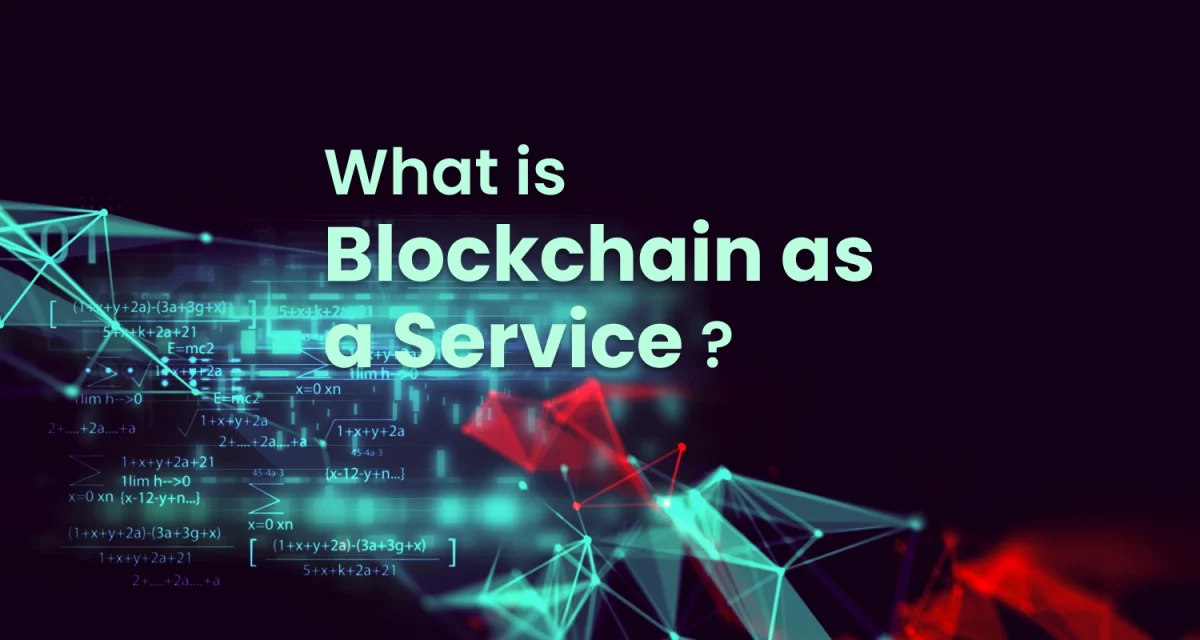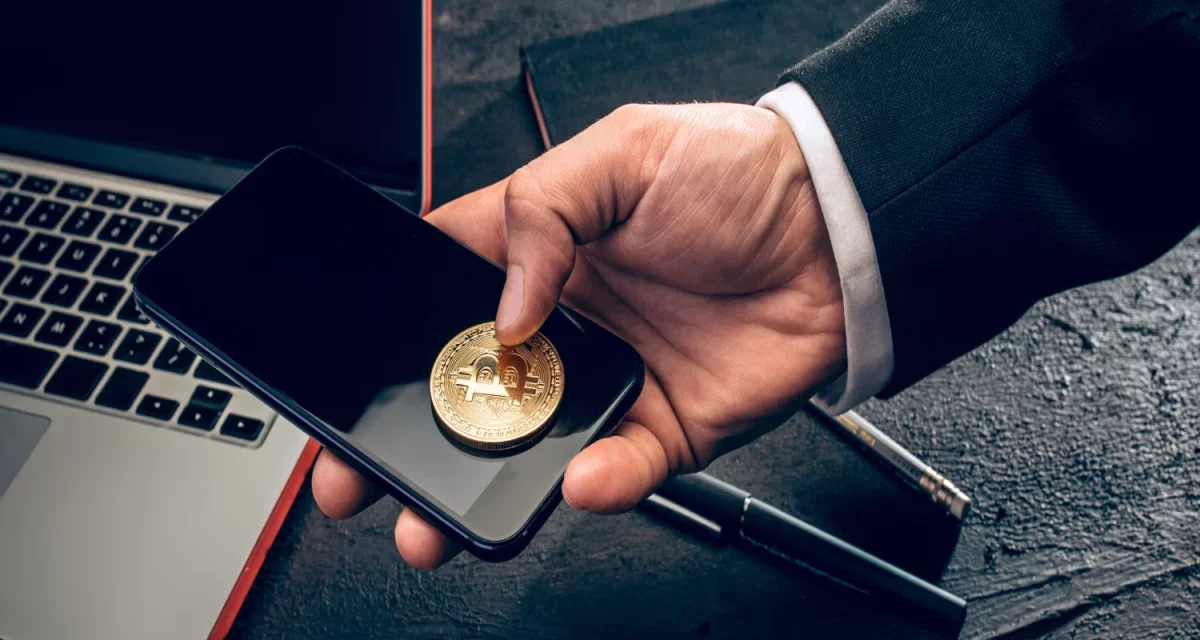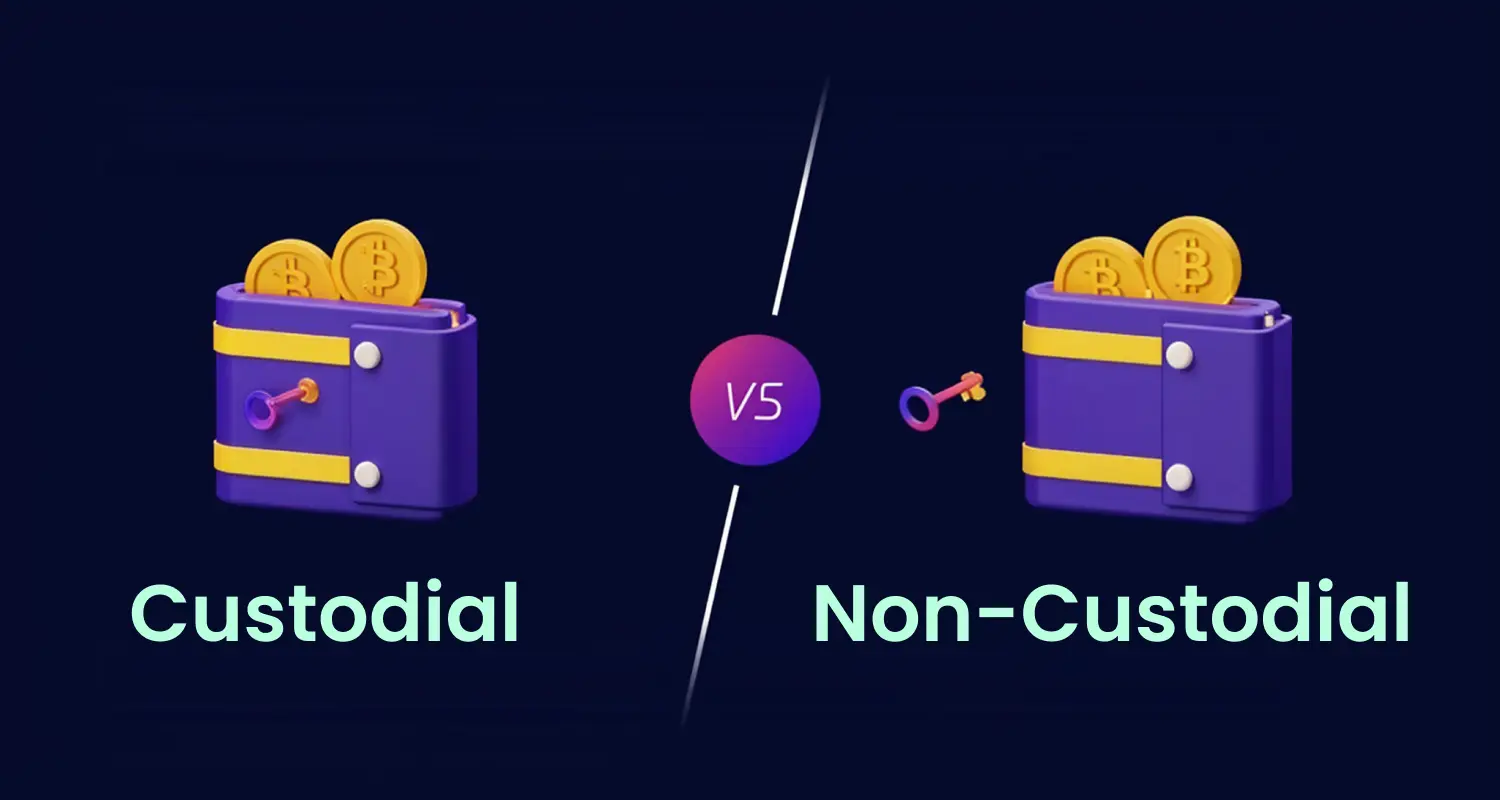
Do you truly own your cryptocurrency, or are you entrusting it to a third party? As blockchain technology evolves, choosing the right type of wallet isn’t just about convenience. It determines your level of control over your assets. Many crypto users don’t realize that there are two fundamentally different types of wallets:
- Custodial wallets: where platforms like Coinbase, Binance, and Crypto.com manage your funds.
- Non-custodial wallets: where you hold your private keys and control your assets entirely, using wallets like MetaMask, Trust Wallet, Exodus, Ledger, or Trezor.
It’s like keeping money in a bank vs. holding cash in your own hands. Each option comes with its own benefits and risks.
Custodial and non-custodial wallet: Which option is safer? In this guide, we’ll explore what a non-custodial wallet is, the benefits of using a non-custodial wallet, and how to choose between custodial and non-custodial wallets based on your needs.
1. What is a custodial wallet?
A custodial wallet is a type of cryptocurrency wallet where a third party, like an exchange or service provider, holds your private keys for you. This means you can access and manage your funds through their platform, but you don’t have full control, because the custodian has the final say.
How it work: When you use a custodial wallet, you’re trusting a company to keep your crypto safe. They handle security, store your private keys, and allow you to make transactions through their system. It’s similar to keeping money in a bank, convenient, but you rely on them to manage your funds.
|
Pros of custodial wallets
|
Cons of custodial wallets
|
|
Easy to use: No need to manage or remember private keys.
Account recovery: If you lose access, you can reset your password.
Extra security: Many providers offer fraud protection and strong security features.
|
Less control: You don’t fully own your crypto because someone else holds the keys.
Security risks: If the platform gets hacked or freezes accounts, your funds could be affected.
Privacy concerns: Many custodial wallets require ID verification (KYC), reducing anonymity.
|

Read more >>> How Much Does It Cost to Create a Cryptocurrency in 2025?
2. What is a non custodial wallet?
A non-custodial wallet is a type of cryptocurrency wallet where you hold private keys, meaning you have full control over your assets. Unlike custodial wallets, no third party manages or stores your funds, you are the sole owner and responsible for keeping them safe.
How it works: When you set up a non-custodial wallet, it generates a private key (or a recovery phrase) that only you have access to. This key is like the password to your crypto. It grants full authority over your funds. Since no company or exchange stores this information, losing it means losing access to your assets permanently.
|
Pros of non custodial wallets
|
Cons of non custodial wallets
|
|
|
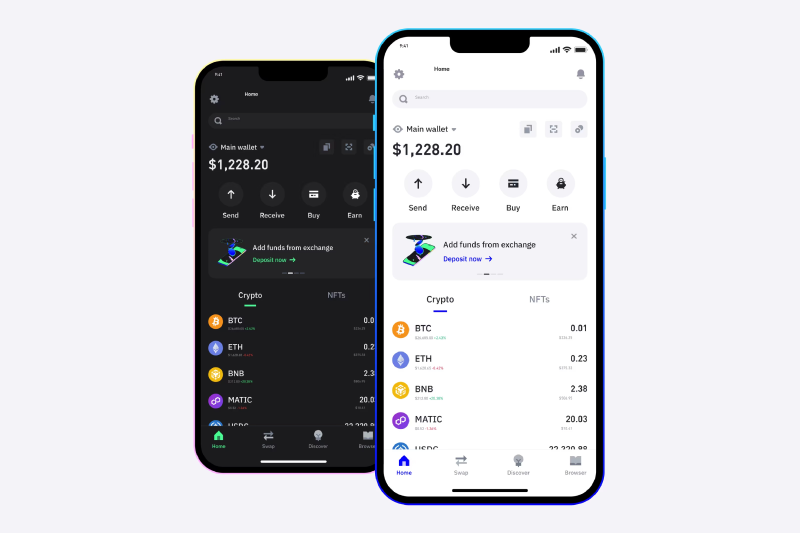
Read more >>> How to Create a Blockchain: Build Your Own Secure Network Today!
3. Custodial vs. non custodial wallets: The key differences
At the heart of crypto ownership lies one crucial question: Who holds the keys to your assets? The answer determines whether you’re using a custodial or non-custodial wallet, and each comes with its own trade-offs.
Imagine this: A custodial wallet is like keeping your money in a bank—you trust them to store it safely, but they have control over it. On the other hand, a non-custodial wallet is like carrying cash in your pocket. You are in full control, but you also bear all the responsibility.
Here’s a quick breakdown of how they compare:
| Feature | Custodial Wallet | Non-Custodial Wallet |
| Who holds the keys? | A third-party service (exchange, platform) | You, and only you |
| Control over funds | Provider manages access | Full ownership, no middleman |
| Security risks | Dependent on the provider’s security | Your responsibility to protect keys |
| Ease of use | Beginner-friendly, no key management | Requires understanding of key storage |
| Recovery options | Can reset password with provider | No recovery—lose the key, lose the funds |
| Privacy level | Often requires ID verification (KYC) | No personal info needed |
| Potential risks | Exchange hacks, account freezes, or platform shutdowns | Losing access due to misplaced keys |
So, which one is right for you?
- If you want convenience and don’t mind relying on a trusted platform → Custodial wallet
- If you believe in the phrase “Not your keys, not your coins” and want complete control → Non-custodial wallet
Looking for a Tech Partner Who Delivers Real Results?
We provide tailored IT solutions designed to fuel your success. Let`s map out a winning strategy. Starting with a free consultation.
Connect with an ExpertRead more >>> 15 Best Blockchain Programming Language for Smart Contracts and DApps
4. The key benefits of non-custodial wallets
In the world of cryptocurrency, true ownership means having full control over your assets, without relying on banks, exchanges, or third parties. Non-custodial wallets empower users with financial independence, privacy, and security, but they also require responsibility. Let’s explore the key benefits of non-custodial wallets and why they’re essential for those who value decentralization and self-sovereignty.
4.1 True ownership & financial freedom
With a non-custodial wallet, you hold private keys, meaning you fully own your crypto, no exchange, bank, or government can freeze or control it. This is the essence of decentralization and financial independence.

4.2 Better privacy & no KYC
Most non-custodial wallets don’t require identity verification, letting you create and use them without sharing personal information. Some even support privacy features like coin mixing to make transactions harder to trace.
4.3 No third-party risk
Crypto exchanges get hacked, freeze withdrawals, or go bankrupt (FTX, Mt. Gox, etc.). With a non-custodial wallet, your funds are safe because no one else holds them. There’s also no risk of your account being restricted or blocked.
4.4 Stronger security
Since no central service stores your keys, phishing attacks and data breaches are less of a concern. You can also integrate with hardware wallets for extra protection. Some wallets even explore quantum-resistant security for future threats.
4.5 Access to defi & web3
Non-custodial wallets are essential for using decentralized apps (dApps), trading on DEXs, staking, and NFT ownership. Many custodial wallets don’t support these features, limiting your access to the full potential of crypto.
4.6 Global access & portability
A 12- or 24-word seed phrase lets you recover your wallet anywhere in the world, ideal for people in countries with financial restrictions or those who travel often. Some wallets now offer social recovery options, reducing the risk of losing access without sacrificing control.
5. Risks and challenges of non-custodial wallets
While custodial and non-custodial wallets offer different levels of control over your crypto, non-custodial wallets give you full ownership but also come with risks. Unlike custodial wallets, where a provider manages security and recovery, a non-custodial wallet requires you to take full responsibility for protecting your assets.
5.1 You are fully responsible for security
With a non-custodial wallet, losing your private key means losing access forever—there’s no customer support to help. Many users make the mistake of storing their seed phrases in unsafe places, like screenshots or online notes, making them vulnerable to hacking. If you misplace your recovery phrase, your funds cannot be recovered.
5.2 High risk of human error
Mistakes in crypto transactions are often irreversible. If you send funds to the wrong address, they’re gone. Setting the wrong transaction fee can cause delays or failed transactions. While some newer wallets offer social recovery options, they are not widely adopted yet.
5.3 Susceptibility to hacks & scams
Since non-custodial wallets don’t have extra security layers like centralized exchanges, users are more exposed to phishing attacks, malware, and scams. Fake wallet apps and malicious websites can trick users into entering their private keys. Using a hardware wallet and keeping keys offline is the best way to stay safe.
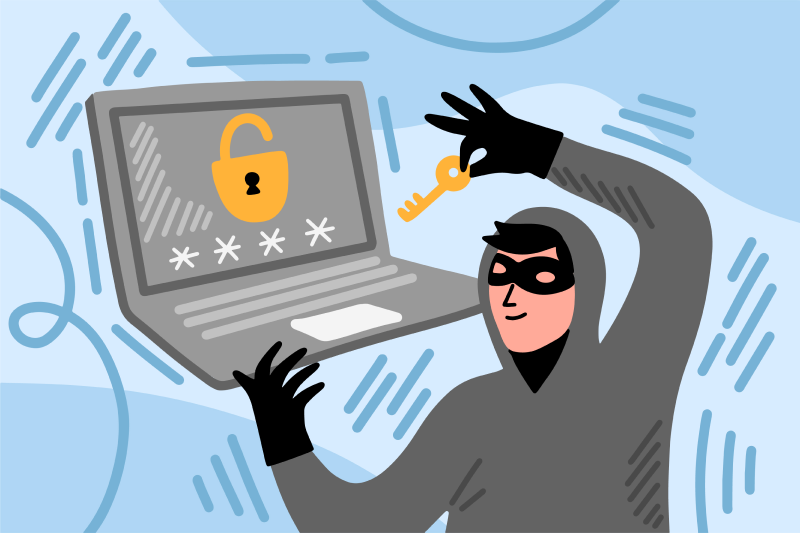
5.4 No fund recovery
If you forget a password in a custodial wallet, you can reset it. But with a non-custodial wallet, if you lose your private key or seed phrase, there’s no way to recover your funds. Some smart contract wallets offer features like trusted recovery contacts, but they are not standard across all wallets.
5.5 Complexity for beginners
Using a non-custodial wallet requires understanding private keys, backup methods, transaction fees, and security risks. Many new users find this overwhelming, leading to mistakes that could cost them their funds. Though wallet interfaces are improving, they still require a learning curve.
5.6 Potential legal & compliance issues
Some governments have started to regulate or restrict the use of self-custody wallets. Privacy-focused wallets may face tighter rules, and resolving disputes in crypto transactions is nearly impossible since there’s no central authority.
Want to Integrate Powerful IT Solutions into Your Business?
We provide tailored IT solutions designed to fuel your success. Let`s map out a winning strategy. Starting with a free consultation.
Contact Us6. Conclusion
The key difference between custodial and non-custodial wallets comes down to control and security. Custodial wallets offer convenience, making them a good choice for beginners, but they require you to trust a third party with your funds. Non-custodial wallets provide true ownership and better privacy, but they come with the responsibility of managing your own private keys.
So, which one is right for you?
- If you want ease of use, password recovery, and customer support, a custodial wallet may suit you.
- If you prioritize security, privacy, and full control over your assets, a non-custodial wallet is the way to go.
At Stepmedia Software, we empower users with secure, non-custodial wallet solutions, ensuring better privacy and full control over digital assets. Take charge of your crypto journey today- explore non-custodial wallets with Stepmedia Software!


